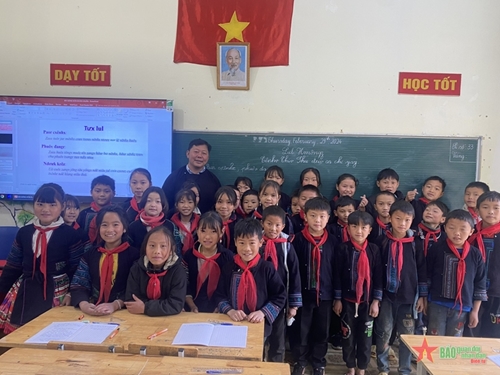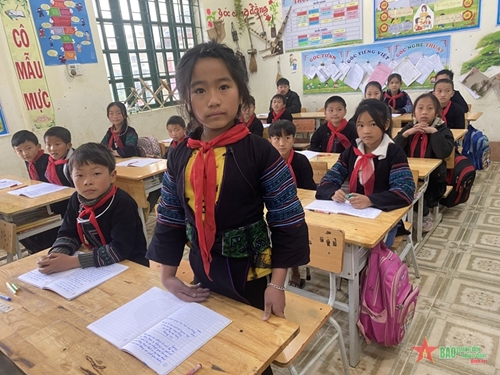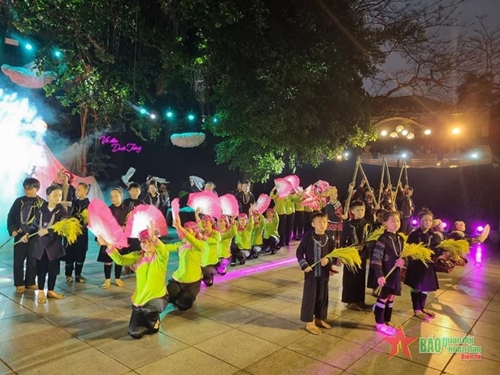H’mong language classes for students at primary schools in Sa Pa town are held regularly, 2 lessons per week. Apart from learning to read and write the official Vietnamese language, students also learn to read poems and sing famous folk songs which are translated into their ethnic language, and learn about examples of the H’mong people who have started their own businesses and succeeded.
    |
 |
|
A H’mong language lesson in Ham Rong Primary School |
Hang Thi Dung, a student from class 5A1, Ham Rong Primary School, shared that she was happy to learn her ethnic language. When they finish learning, they translate what they have learnt into the official Vietnamese language to better understand the learning materials and share them with their families. This is an encouragement for her to study hard to realize her dream.
Currently, in primary schools in Sa Pa town where the H’mong language is taught, each school has a local teacher who can teach both the Vietnamese and H’mong languages for H’mong students.
    |
 |
|
H’mong students in Sa Pa town wear traditional costumes when going to the school. |
According to Chau A Tan, teacher from Ham Rong Primary School, currently international H’mong language is developing rapidly in the world. Therefore, the H’mong people in Vietnam should study hard to preserve and promote their ethnic language.
In addition to focusing on multilingual education for students, primary schools in Sa Pa town have effectively maintained extracurricular hours about traditional H’mong songs and dances for H’mong students. Moreover, H’mong students also wear their traditional costumes twice a week to create a learning environment associated with ethnic cultural identity, thereby helping them to preserve and uphold their ethnic traditions.
    |
 |
|
H’mong students in a performance at Sapa Cultural and Tourism Festival in Hanoi |
Tran Thi Mai Sam, Vice headmaster of Ham Rong Primary School, shared that as a primary school with 99% of students being H’mong ethnic people, bilingual teaching for students plays an important role in enhancing the quality of education and training; maintaining and preserving the H’mong people’ cultural identity; and raising the quality of community-based tourism to attract foreign visitors.
The meaningful lessons have sown the seeds of dreams about the future for H’mong ethnic students, contributing to joining hands with Sa Pa town to promote the inner strength of local culture for sustainable tourism development.
Translated by Quynh Oanh